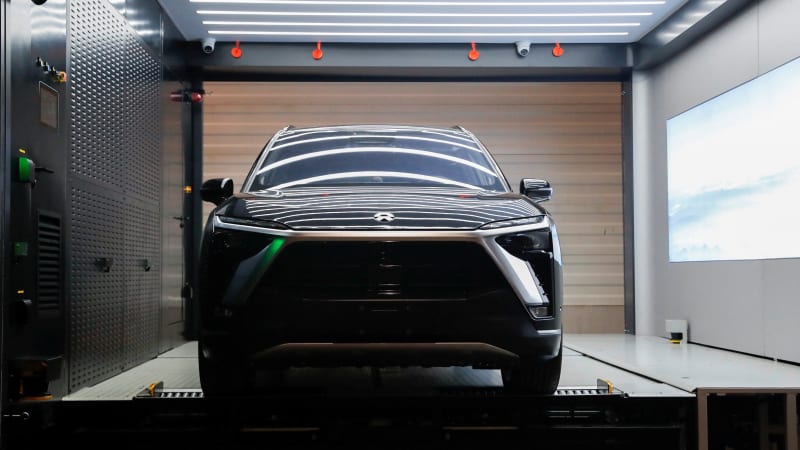
BERLIN — Chinese electric vehicle maker Nio will only lease its cars when it launches in four European markets this year, its CEO told Reuters, betting that flexibility will be a key selling point as drivers switch to the new technology.
Users will be able to lease a car with a 75-kilowatt-hour battery for 1,199-1,295 euros ($1,171-$1,264) a month depending on the length of the subscription, which can be as short as a month.
The plan is the latest unconventional move by the company, which already allows customers to rent rather than buy the battery — the most expensive part of an electric vehicle (EV).
Rather than charging their cars at home, Nio owners can also drive them to a battery swapping station to have a new powerpack installed in minutes to save time.
Now, as it prepares to launch in Germany, the Netherlands, Sweden and Denmark, Nio plans to operate its businesses there on a corporate leasing and subscription model, offering all three models available in China — the ET7, ET5 and EL7, with the latter renamed in Europe from its Chinese name of ES7 because of a branding dispute with Volkswagen’s Audi.
“We will not be selling cars,” CEO William Li said in an interview at the company’s new ‘Nio House’ showroom in central Berlin, the first of nine new members club-style venues to open for Nio fans in Europe this year.
“Flexibility is the new premium.”
Nio has sold just under 250,000 vehicles in China and Norway since starting production in 2018. Prices range from around 50,000-70,000 euros ($49,000-$69,000), depending on the car’s range and whether customers buy or rent the battery.
It has so far operated on a make-to-order basis, creating bespoke products for customers and keeping inventory low.
Nio will stick to direct sales in existing markets in part due to less attractive taxation on subscription models in Norway and restrictions around license plates in China, Li said.
BATTERY SWAP
Nio is facing competition in China from a growing number of EV startups from Xpeng to Hozon and Leapmotor as well as larger manufacturers like China’s BYD and Tesla.
In Europe, it will be chasing after Tesla and Volkswagen for the top spot on EV sales.
The plan is to install at least 120 battery swapping stations in Europe by the end of next year, Li said, adding it was not so much a matter of the financial investment but of the time and bureaucracy required to get it done.
The company opened its first plant to manufacture swapping stations in Hungary last month, and would consider producing batteries in the region once it reaches battery sales in Europe equivalent to around 10 gigawatt hours, Li said.
“The advantage of our business separating the car from the battery is that we may reach economies of scale for the batteries faster than the cars,” Li said. “When we reach 10 gigawatt hours, we will consider localizing production.”
In China, where that target has already been met, a team of around 700 people is working on in-house battery production, enabling the company to take control of its battery supply.
In the meantime, Nio is seeking further partners beyond its current supplier, CATL, Li said, adding it aimed to have new partnerships secured next year.
“In the long-run we believe any top company in the automotive industry will soon have in-house battery production,” Li said.
Nio’s revenue grew 22% in the second quarter from a year ago while its net loss more than quadrupled to the equivalent of $410 million.
It delivered just under 32,000 vehicles in September, up 29.3% year on year. Supply chain troubles in China due to COVID-19 lockdowns in August eased faster than expected, Li said.
(Reporting by Victoria Waldersee Editing by Rachel More and Mark Potter)
Related video:
